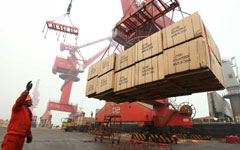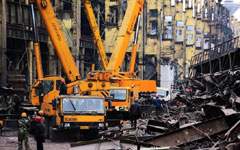Beijing holds the key to regional integration
By Li Yang (China Daily) Updated: 2014-03-13 08:27The fast-developing railway and highway traffic nets, Hebei's and Tianjin's harbors on Bohai Bay, and the extension of Internet to grassroots communities all serve to connect the region.
Analysts believe that if Beijing can contribute more to integrating the regions - and there is a lot Beijing can and should do - the plan should see fruition. Helping Hebei modernize its industries already is a mandatory solution for cutting pollution in North China.
|
 |
|
 |
Led by the central government, Hebei has vowed to weed out its backward industries and digest the overcapacity in some of its pillar industries, such as iron and steel, sheet glass, cement and coal, within five years.
If more environmentally friendly industries can move to the province from Beijing and Tianjin, it will be a win-win development for the entire region.
The high price of land in Beijing, the lower labor costs in Hebei and the sound infrastructure in Tianjin make it a rational choice for the two cities to move some of their higher-tech and more modern industries to Hebei.
By agreeing to accept these newcomers as an integral part of its local economy, Hebei can boost its industrial restructuring and upgrading.
"The key is to lift the controls hindering production factors' free flow," Zhu noted.
"A more balanced industrial distribution across the region can help shorten the wealth gap between Beijing and Hebei and create conditions for a fairer allocation of resources and talent," he added.
- NHTSA says finds no 'defect trend' in Tesla Model S sedans
- WTO rare earth ruling is unfair
- Amway says 2014 China sales may grow 8%
- President Xi in Europe: Forging deals, boosting business
- CNOOC releases 2013 sustainability report
- Local production by Chery Jaguar Land Rover this year
- Car lovers test their need for speed in BMW Mission 3
- China stocks close mixed Monday

















